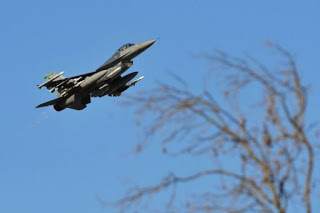Afghanistan’s president Hamid Karzai recently came out swinging at the West again, this time on the topic of opium eradication. Responding to the latest UN report showing an opium production increase of 17 percent in 2007, Karzai accused the international community of failing to implement a coherent counter-narcotics strategy in Afghanistan.
Opium production has indeed skyrocketed to record levels. Now nearly the world’s sole producer of the crop, Afghanistan puts more opium on the market than Colombia, Bolivia and Peru combined. The Afghan government has certainly failed to contain this problem. But Karzai is also right: the international community has been part of the problem.
Poppy eradication is no easy thing. For farmers in Afghanistan’s southern Helmand province, a Taliban stronghold that is home to most of the country’s opium production, poppy is an extremely resilient crop. Such resiliency is a virtue in a drought-stricken province with failing irrigation systems. For farmers’ families, the province of 700,000 maintains only two functioning hospitals. Unemployment is high, and educational opportunities are few. Profitable poppies, then, become a means of surviving. With Taliban offering security, few farmers, especially the poorer ones, can say no.
Karzai has attempted to blame this situation on outsiders, with statements such as “wherever the [Afghan] government is present, the drug fight is successful. Yet Karzai’s government is full of warlords and other officials entrenched in drug trading. Corruption is rampant, and a dysfunctional legal system makes accountability near impossible. So, while the West’s approach to Afghanistan certainly needs mending, Karzai’s home front also needs attention.
It is feasible to address both of these problems of production and accountability at the same time. Slowing the poppy frenzy is possible if farmers are given incentives to pursue traditional crops such as wheat, pomegranate, and melon. They also need the means to do so, including adequate irrigation systems and equipment. What will not work, however – and what the United States has proposed and NATO has opposed – is crop spraying. Spraying contaminates water supply (already a problem in Afghanistan), ruins soil balance thus preventing replacement crops, and is accompanied by a multitude of health concerns such as skin infections. Already farmers are turning to the Taliban for crop protection, a trend likely to increase if the United States proceeds as planned. Eradicating farmers’ primary means of income simply forces them to look elsewhere. And Taliban recruiters eagerly stand by.
This is where the government comes in. With few mechanisms to hold anyone accountable, local and national officials often quickly pocket the money donated to help farmers. Karzai must change this culture of impunity and start cleaning house, beginning with his own party in Kabul. Only then can much-needed economic aid be assured safe passage. After that, a sit-down with farmers to figure out alternatives might ease minds in Helmand, particularly those who teeter on the fence debating the benefits of Taliban protection. Bringing the Taliban into the political process, which Karzai has recently intimated and the Taliban is now willing to consider, could burst the bubble of resistance growing daily in Afghanistan’s south. As the Taliban gets stronger, Kabul can either engage them constructively or face many more months of expensive and deadly conflict.
Karzai’s weak attempt to hold the West responsible for the world’s most abundant opium crop reveals his frustration and also his need for help. Undertaking the tasks above will be impossible for Karzai alone. Lest next year usher in another 17 percent growth in production, the international community must coordinate with Kabul to figure out a different fate for the farmers of Helmand. Do it soon, because the competition for their attention is fierce.
Michael Shankis a doctoral student at George Mason University’s Institute for Conflict Analysis and Resolution. Shukria Dellawaris a master’s student at the institute.

